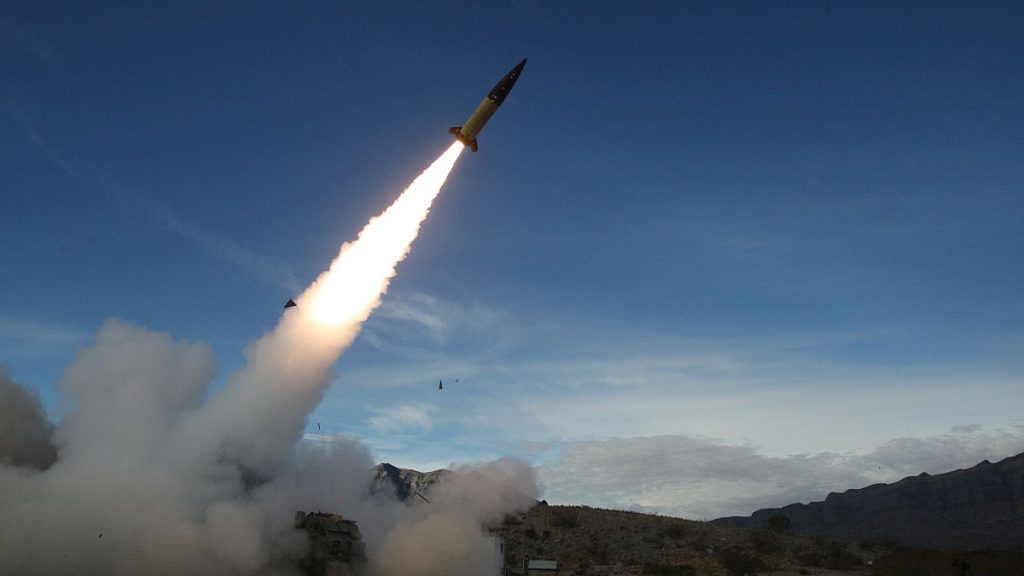Russia has launched a barrage of airstrikes against Ukraine for the second night in a row, with the one on Monday being its largest since the beginning of the full-scale war with over 230 missiles and drones. These attacks have renewed Ukrainian calls for its Western allies to lift the restrictions on using long-range weapons to hit targets inside Russia. According to Fabian Rene Hoffmann, a doctoral research fellow at the University of Oslo, Ukraine needs to target Russia’s missile launchers themselves to prevent the barrages of airstrikes. The US-based Institute for the Study of War (ISW) points out that there are at least 250 military and paramilitary objects in Russia within the range of the ATACMS missiles that the US has provided Ukraine. The ISW believes Ukraine does not have to strike every single military and paramilitary object inside Russia within range of Western-provided weapons if it wants to start generating significant operational pressures on the Russian military.
The US has stipulated that the missiles provided to Ukraine can only be fired a short distance into Russia, raising concerns about the ability of Ukraine to effectively defend itself against Russian attacks. Hoffmann suggests that this restriction may need to be lifted in order for Ukraine to properly defend itself against Russian aggression. He emphasizes the importance of targeting the missile launchers themselves to prevent future airstrikes and stresses the need for decision-makers to weigh the risks associated with potential escalations and Russian responses. Hoffmann questions whether the US and other Western allies are willing to take the risk of a humanitarian disaster in Europe in order to allow Ukraine to employ Western weapon systems against Russian targets deeper inside Russia.
The ongoing conflict between Russia and Ukraine has intensified with Russia launching a large-scale airstrike on Ukraine, prompting renewed calls from Ukraine for its Western allies to lift restrictions on using long-range weapons. The need to target Russia’s missile launchers to prevent future airstrikes is highlighted by experts, including Fabian Rene Hoffmann, who argues that Ukraine must take action against the sources of these attacks rather than waiting for them to reach Ukrainian airspace. The Institute for the Study of War (ISW) points out that there are targets within Russia that can be hit with the missiles provided by the US, potentially allowing Ukraine to exert significant pressure on the Russian military.
The restrictions placed on Ukraine by the US in terms of how far the provided missiles can be fired into Russia raise concerns about Ukraine’s ability to effectively defend itself. Hoffmann suggests that the current limitations may need to be reevaluated in order for Ukraine to have a better chance at countering Russian aggression. He highlights the importance of decision-makers considering the risks involved in potentially escalating the conflict with Russia, while also acknowledging the need for Ukraine to be able to defend itself against Russian attacks. The dilemma faced by Western allies in balancing these risks and consequences is underscored in the ongoing debate over whether Ukraine should be allowed to target Russian sites deeper within Russia.
The potential for a humanitarian disaster in Europe and the need for Ukraine to be able to defend itself more effectively against Russian attacks are key concerns in the ongoing conflict between Russia and Ukraine. With Russia launching airstrikes on Ukraine and Ukraine calling for the lifting of restrictions on using long-range weapons, the debate over how best to address the situation continues. Experts like Fabian Rene Hoffmann emphasize the importance of targeting the sources of Russian aggression to prevent further attacks and stress the need for a reevaluation of the restrictions placed on Ukraine by the US. The decision on whether to allow Ukraine to target Russian sites deeper within Russia involves weighing the risks of escalation against the need for Ukraine to be able to defend itself against Russian aggression.
The intensification of the conflict between Russia and Ukraine, marked by large-scale airstrikes by Russia and renewed calls from Ukraine for greater support from Western allies, underscores the importance of addressing the ongoing crisis. The need for Ukraine to target Russian missile launchers to prevent future airstrikes, the potential risks associated with lifting restrictions on long-range weapons, and the ethical considerations of potential escalation and humanitarian consequences are central to the debate. As Ukraine continues to face Russian aggression, the decisions made by Western allies and the strategic choices made by Ukraine will have significant implications for the outcome of the conflict and the future of the region. The challenges posed by the conflict highlight the complex geopolitical dynamics at play and the need for careful consideration of how best to navigate the situation in order to mitigate further escalation and protect the interests of all parties involved.


